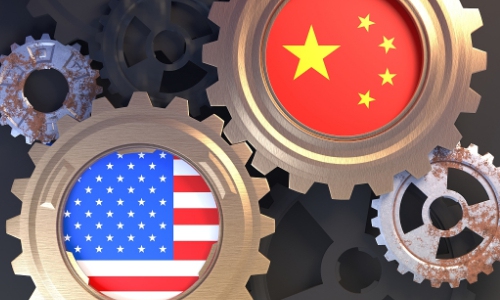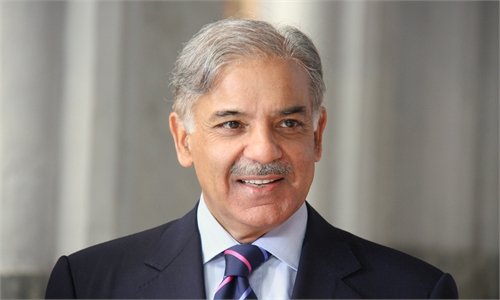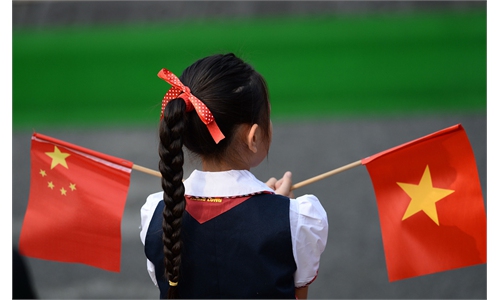China to host several foreign leaders following key CPC congress, to set good example of major country diplomacy
Intensive visits show countries positive on China’s development
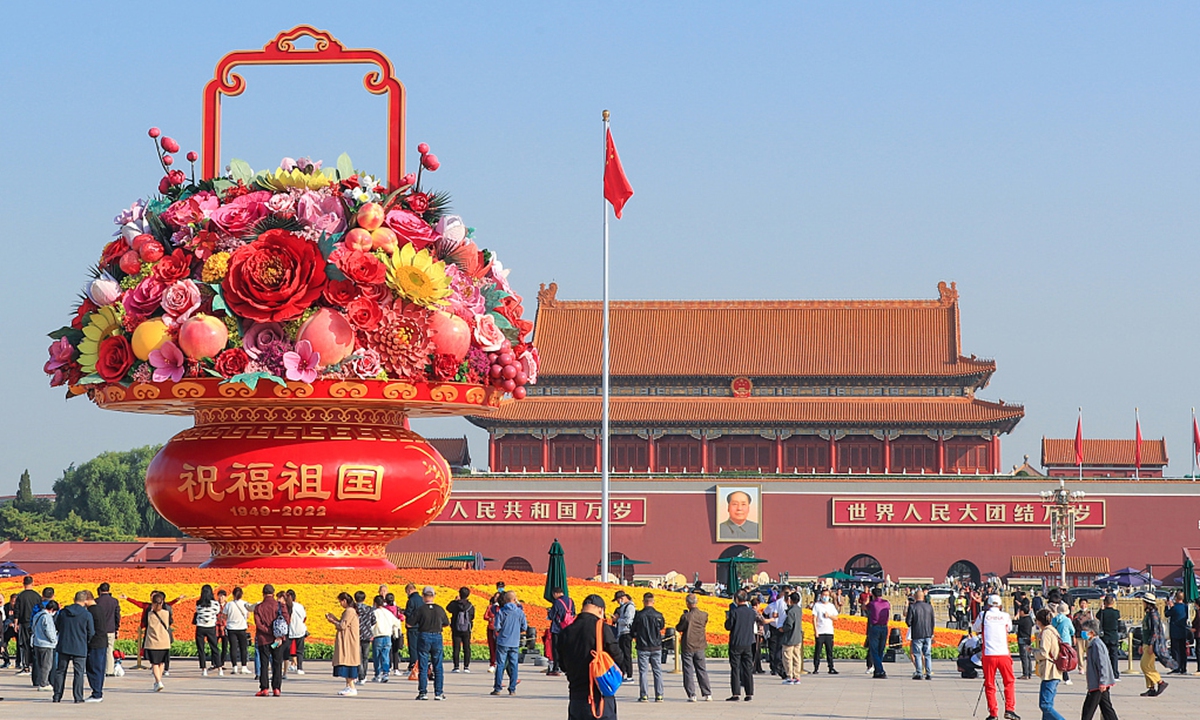
A giant flower basket that says "Bless the Motherland" attracts visitors at Tian'anmen Square in Beijing on September 25, 2022. Photo: VCG
China will soon unveil its major diplomatic events after the conclusion of the 20th National Congress of the Communist Party of China (CPC) by welcoming several foreign leaders from countries with different political systems and economic development paths, illustrating that more countries hold positive views on China's future development and welcome the country's foreign policy embedded with the concept of humanity's shared values pursued by the CPC.
At the invitation of Premier Li Keqiang, German Chancellor Olaf Scholz will pay an official visit to China on November 4, Chinese Foreign Ministry spokesperson Wang Wenbin announced on Friday.
He also became the latest foreign leader set to visit China, as General Secretary of the Communist Party of Vietnam (CPV) Central Committee Nguyen Phu Trong, Pakistani Prime Minister Shahbaz Sharif and Samia Suluhu Hassan, president of the United Republic of Tanzania are scheduled to visit the country in the coming days.
Such intensive visits to China following the CPC's key congress show that many countries in the world understand, support and welcome China's diplomatic ideas and approaches in the face of intensifying geopolitical uncertainties, drawing a sharp contrast with US-led Western hegemony that has triggered growing confrontation and divisions by piecing together small cliques, some experts said. More countries are also expected to share experiences and find some inspiration for their own growth.
Vietnam's communist party chief will pay an official visit to China from October 30 to November 2 at the invitation of Xi Jinping, general secretary of the CPC Central Committee and Chinese President. Trong will also be the first foreign leader to visit China after the 20th National Congress of the CPC.
Pakistani Prime Minister Shahbaz Sharif will also visit China from November 1, which will also be his first visit to China since taking office in April, the Chinese Foreign Ministry announced earlier this week. It demonstrates the special friendship and strategic mutual trust between China and Pakistan, which is also a continuation of the positive momentum of close high-level contacts between the two countries, according to the ministry.
Meanwhile, Samia Suluhu Hassan, president of the United Republic of Tanzania, will pay a state visit to China from November 2 to November 4, who will also be the first head of state from Africa to visit China after the CPC National Congress. .
In addition to leaders from Asia and Africa, German Chancellor Scholz's trip to China will make him the first G7 leader to travel to the country since the beginning of the COVID-19 pandemic, media reports said.
These visits of foreign leaders to China show that more and more countries are optimistic about China's future development, especially after the 20th CPC National Congress signaled the stability, predictability and continuity of our policies, more countries are willing to maintain cooperation with China, a Beijing-based expert on foreign relations who preferred not to be named told the Global Times on Friday.
"This also shows that China's diplomatic ideas are welcomed, understood and supported by many countries around the world, which also underscores the ideas of common interests and security, helping push forward the international order to a fairer and more equitable direction," the expert said.
Shared values highlighted
As the world stands at a critical junction in the face of growing challenges such as the Russia-Ukraine conflict, energy crises and the impact of COVID, how China plays its role will also affect how the world is developing, and the upcoming face-to-face communication between foreign and Chinese leaders serves as an important opportunity to understand where China's policy and diplomacy is leading, some experts said.
It has been a long time since Chinese and German leaders have had face-to-face communication, and Scholz will be visiting China at a key period when the two countries celebrate the 50th anniversary of the establishment of diplomatic relations and Berlin plans its overall foreign policy with its China policy as a major part, Cui Hongjian, director of the Department of European Studies at the China Institute of International Studies, told the Global Times on Friday.
"The direct communication will help shape consensus, as we have heard different voices concerning China-Germany relations in the European country. Some questions need to be answered: Should we adhere to the basis of pragmatic cooperation? How do we handle the Ukraine crisis and where are China-EU relations heading?" Cui said.
After Xi was elected general secretary of the 20th Central Committee of the CPC at the committee's first plenary session, he expressed China's commitment to promoting the building of a human community with a shared future.
"We will work with peoples of all other countries to champion humanity's shared values of peace, development, fairness, justice, democracy, and freedom to safeguard global peace and promote global development, and keep promoting the building of a human community with a shared future," Xi said when meeting the press at the Great Hall of the People on October 23.
In the eyes of Chinese experts, such commitment is also underscored in the country's future diplomacy with the firm determination of deeply integrating into the world's economic system and taking concrete actions in pushing forward a human community with a shared future.
After the Party's congress, China released a series of signals welcoming foreign investment and continuing cooperation with other countries, and such determination to advance a human community with a shared future will also crush the US' ill-intentioned attempts of decoupling and disruption of supply chains, Yang Xiyu, a senior research fellow at the China Institute of International Studies, told the Global Times on Friday.
"It's believed that many other foreign leaders hope to visit China after the Party congress to learn China's policy," Yang said.
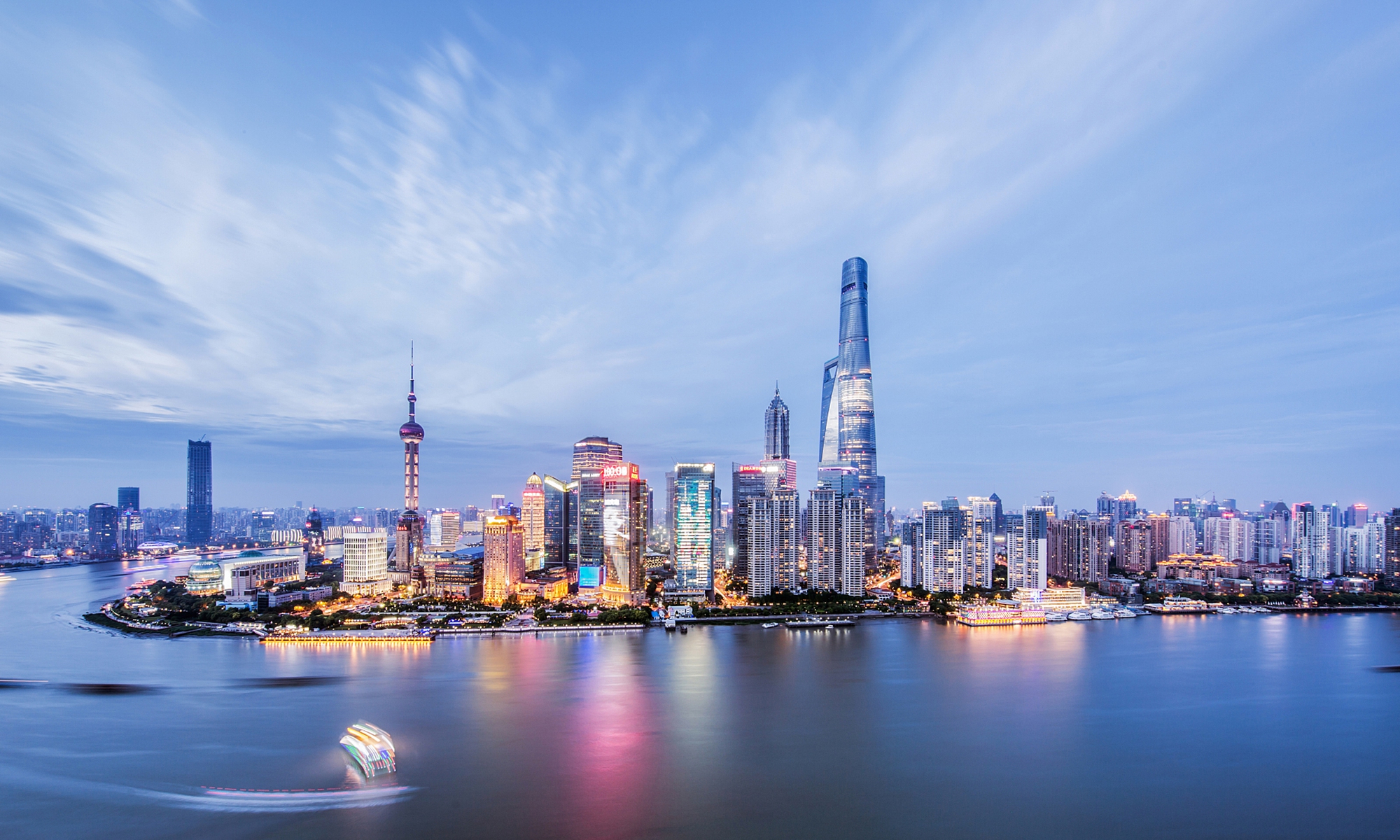
Shanghai Photo:VCG
Setting an example
Xi said when meeting the press on October 23 that China will open its door wider to the rest of the world, and will be steadfast in deepening reform and opening up across the board, and in pursuing high-quality development. A prosperous China will create many more opportunities for the world, he said.
As the CPC embarks on a new journey, it's also time to share experiences and opportunities of China's path to modernization with the world, which could set an example for other developing countries, Wang Yiwei, director of the Institute of International Affairs at the Renmin University of China, told the Global Times on Friday.
"For example, we have signed many cooperation deals on the Belt and Road Initiative with countries like Vietnam, bringing benefits to local people and businesses. Amid rising energy prices, China and Germany could cooperate in the area, and the two countries have more opportunities in cooperating in new-energy vehicles," he said.
This cooperation is not defined or driven by ideology nor self-righteous mindsets like the US has done by exporting or imposing its own values or forcing others to acceptits so-called rules, and China never seeks to export its development model, Wang said.
As Scholz will also be the first Western leader to visit China after the Party's congress, experts believe that pragmatic China-Germany relations will also play a role of stabilizing China-EU relations, given that Germany is the bloc's largest trading partner with China.
"In the Merkel era, China-Germany relations also played a major role in overall China-EU relations. If the two sides can stabilize and further improve their relations, it will also serve as a good example not only for Europe but also for the West," Cui said.


